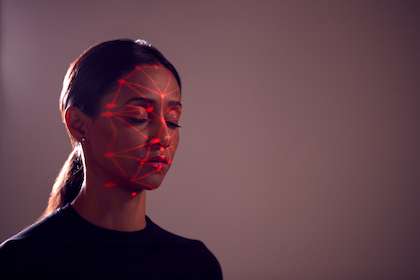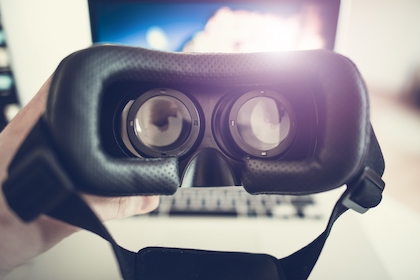At the end of last year, we highlighted augmented and virtual reality as a marketing trend to watch out for in 2022. Since then, there’s been an increase in companies that have used these mediums to advertise. In addition to that, there’s also been an increasing amount of buzz about things like the Metaverse (we use that term loosely and are not specifically talking about Facebook’s Metaverse, but rather the whole of AR/VR spaces), NFTs, deepfakes, and virtual events — and we don’t mean conferences live-streamed over Zoom.
So, we thought it would be worthwhile to dive a bit deeper into the topic, explore some specific examples, and give an overview on some choice terms. Because, whether you’re a fan or not, these mediums are definitely on their way to normality.
Virtual Concerts
Ahead of Netflix’s highly anticipated fourth season of Stranger Things, the streaming giant paired up with Doritos to announce a virtual concert staged in The Upside Down — the show’s dark and demonic alternate reality. The concert features a number of familiar 80s headliners (the era in which the show takes place) including The Go-Go’s, Corey Hart, and Soft Cell. In addition to that, current-day pop star Charli XCX will make an appearance. The virtual concert trend is something that Fortnite, a video game of monumental popularity, has really set in motion. Over the last couple of years, some of the world’s biggest stars, like Ariana Grande, have collaborated with developers at Epic Games to host their own virtual gigs for millions of players and fans.
Deepfakes

Coined in 2017, the term deepfake refers to synthetic media wherein a person’s likeness is overlaid on someone else, kind of like a mask. The word is a combination of ‘deep learning technology’ and ‘fake.’’ Deep learning is an AI inspired by the human brain that learns from large amounts of data by imitating the way humans gain certain types of knowledge. It’s a very important part of data science but is also the main technology used to create deepfakes, which are becoming an increasingly popular yet controversial thing.
Technology gets better every single day, which means in the case of a deepfake, they get increasingly difficult to spot. That can be a scary thing in the hands of the public and of companies who choose not to be transparent about it. But, with a little bit of hope, there are some great marketing opportunities that this technology affords if it’s used ethically.
Metaverses and Virtual Reality

Whether you understand them or not, Metaverses are becoming an increasingly popular tool. And while they are still in their early stages, marketers are taking advantage of their novelty in an attempt to be one of the first to make a big move in the space.
Many luxury fashion brands have created virtual shows to showcase collections — a trend that become popular when Fashion Week’s around the world were put on hold due to the pandemic. Some have even created dedicated subsidiaries of their business to explore marketing and commerce in these virtual spaces.
Needless to say, the next few years are going to be incredibly interesting. No one really knows how these kinds of things will pan out in the long run — which is equal parts intriguing, exciting, and terrifying. One thing’s for certain, though — we’ll be watching very closely.
